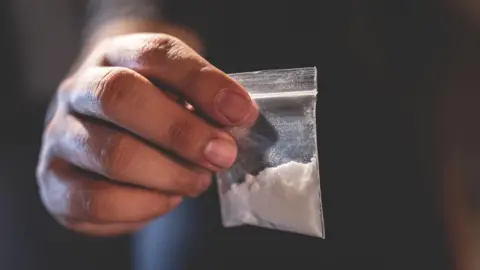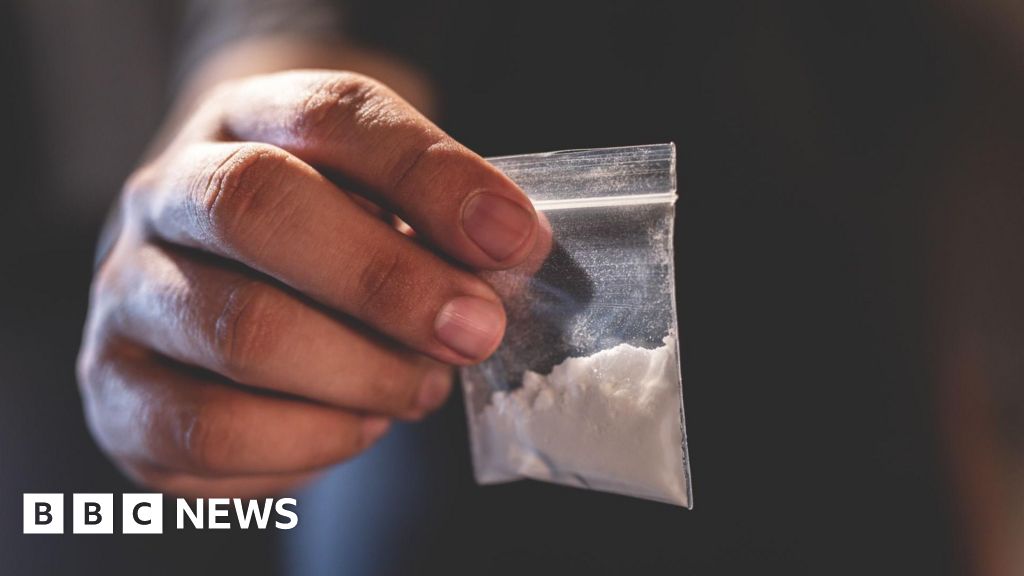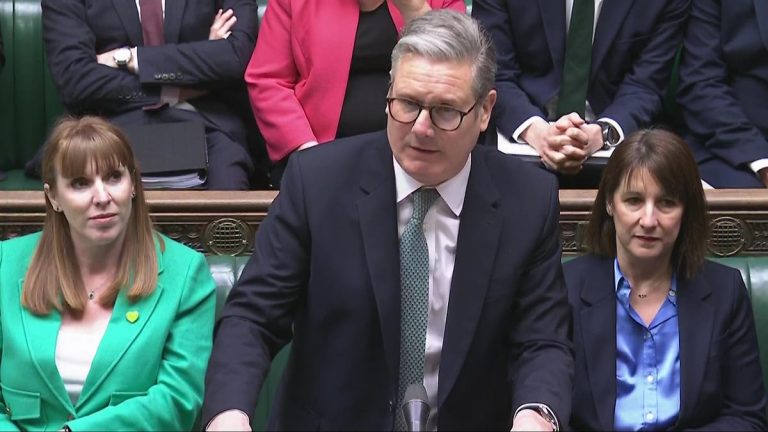 Getty Images
Getty ImagesKetamine could be upgraded to a Class A drug as the government seeks expert advice on its classification, the Home Office has said.
Illegal use of the drug reached record levels last year, it said, with an estimated 299,000 people aged 16-59 reporting ketamine use in the year ending March 2023.
Increasing ketamine’s classification would bring it in line with drugs including cocaine, heroin and ecstasy (MDMA) and mean up to life in prison for supply and production.
The policing minister will ask the Advisory Council on the Misuse of Drugs whether its classification should be changed and “carefully consider” its findings.
Ketamine can cause serious health problems including irreversible damage to the bladder and kidneys.
It is also one of the most detected drugs in incidents of spiking.
While commonly used on animals and in healthcare settings, ketamine is also thought of as a party drug due to its hallucinogenic effects.
It was upgraded from a Class C substance in 2014 due to mounting evidence over its physical and psychological dangers.
Currently, the maximum penalty for producing and supplying ketamine is up to 14 years in prison. Possession can carry up to five years in prison, an unlimited fine, or both.
Should it be upgraded to a Class A drug, supply and production of it could carry up to life in prison, while possession could carry up to seven years in prison, an unlimited fine, or both.
A coroner’s prevention of future deaths report called for action over the drug’s classification, after a man died from sepsis caused by a kidney infection that was “a complication of long-term use of ketamine”.
Greater Manchester South senior coroner Alison Mutch noted that James Boland, 38, started taking the drug as he believed it to be “less harmful” than Class A drugs.
She wrote in November: “Maintaining its classification as a Class B drug was likely to encourage others to start to use it or continue to use it under the false impression it is “safer”.”
Policing minister Dame Diana Johnson has pledged to “work across health, policing and wider public services to drive down drug use and stop those who profit from its supply.
“It is vital we are responding to all the latest evidence and advice to ensure people’s safety and we will carefully consider the ACMD’s recommendations before making any decision.”


![30 of the Cutest Valentine’s Day Outfit Ideas for Every Occasion [2025]](https://wordupnews.com/wp-content/uploads/2025/01/valentines-day-outfits-2025-200x300.jpg)

















![30 of the Cutest Valentine’s Day Outfit Ideas for Every Occasion [2025]](https://wordupnews.com/wp-content/uploads/2025/01/valentines-day-outfits-2025-768x1152.jpg)





+ There are no comments
Add yours